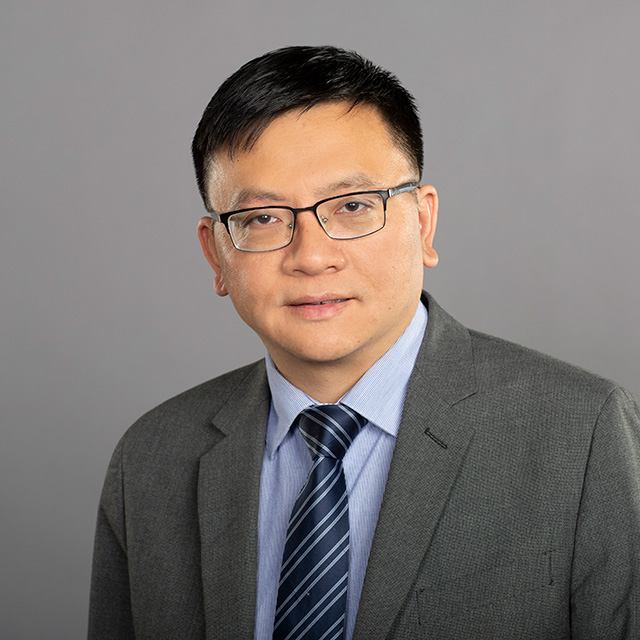

Professor of International Relations; Director, University of Oxford China Centre, University of Oxford

Associate Professor of Political Science, University of Nevada, Reno
The slogan 敢于斗争 (gǎnyú dòuzhēng) has become increasingly prevalent within official discourse in the People’s Republic of China (PRC). When translated into English, it is generally rendered in one of two ways: “dare to fight” or “dare to struggle.”1 One can find the former “dare to fight” translation employed of late by multiple high-profile authors and outlets writing for English-speaking audiences. For instance, a recent Foreign Affairs essay uses this “dare to fight” translation as evidence for the claim that “Chinese leader Xi Jinping says he is preparing for war.” The Financial Times also spotlights Xi’s use of this phrase, with the headline of a recent article reading “‘Dare to Fight’: Xi Jinping Unveils China’s New World Order.” The “dare to fight” translation makes an abundance of other appearances as well, in articles from the New York Times, Reuters, and the Independent, to cite just a few. Even the PRC’s own official mouthpiece, the Xinhua News Agency, has rendered 敢于斗争 (gǎnyú dòuzhēng) as “have the courage to carry on our fight” (original Chinese here).
Despite the popularity of translating 敢于斗争 (gǎnyú dòuzhēng) as “dare to fight,” we would argue that translating 敢于斗争 (gǎnyú dòuzhēng) as “dare to struggle” better reflects the ideological, political, and multidimensional nature of the concept in Chinese official discourse. Precisely, the term 斗争 (dòuzhēng) has a long and complex history within the PRC and translating it as “struggle” better speaks to this nuance. In contrast, rendering the phrase as “dare to fight” risks leaving English-speaking readers with a potentially inaccurate impression of its connotations.
To elaborate, the phrase 敢于斗争 (gǎnyú dòuzhēng) is made up of two elements. The first is the verb phrase 敢于 (gǎnyú), which, according to the standard Foreign Language and Teaching University Press Dictionary, translates as “dare to, be bold in, have the confidence to.” This is relatively straightforward. It is the word 斗争 (dòuzhēng)—which can be either a noun or a verb depending on the context—that is the trickier element.
Broadly speaking, the Chinese concept 斗争 (dòuzhēng) is multifaceted and complicated, and depending on the context, the best word to use for it in a translation may be “struggle,” “fight,” “campaign,” “battle,” or even “strive for.” It also carries central historical and ideological significance within China. Consider the famous line from Marx and Engel’s Communist Manifesto: “The history of all hitherto existing human society is the history of class struggles.” When translated into Chinese, the “struggles” in “class struggles” is rendered as 斗争 (dòuzhēng). Mao also used the term quite liberally. For example, his 1949 piece, “丢掉幻想,准备斗争”(Cast away illusions, prepare to struggle) includes the line: “斗争,失败,再斗争,再失败,再斗争,直至胜利——这就是人民的逻辑” (Struggle, fail, struggle again, fail again, struggle again until the final victory—that is the logic of the people). In some cases, he uses斗争 (dòuzhēng) with explicitly martial connotations, particularly when modified with the word “armed” (武装 wǔzhuāng). For instance, Mao wrote in 1939, “统一战线,武装斗争,党的建设,是中国共产党在中国革命中战胜敌人的三个法宝” (The united front, armed struggle, Party building, these are the Chinese Communist Party’s three magic weapons for triumphing over enemies in the Chinese revolution.) But 斗争 (dòuzhēng) is broader in its meaning than just this, and can also take other modifiers, as when Mao wrote in 1942 of ideational struggle (思想斗争 sīxiǎng dòuzhēng): “我们主张积极的思想斗争,因为它是达到党内和革命团体内的团结使之利于战斗的武器。”(We advocate proactive ideational struggle because it is the weapon for achieving unity within the Party and the revolutionary organizations to the benefit of our battle.)
Indeed, since the establishment of the PRC, many things have been struggled (斗争 dòuzhēng) against: imperialism, liberalism, revisionism, bureaucratism and much more. During the Cultural Revolution, even criticism sessions of fellow Party members were called “struggle meetings” (斗争会 dòuzhēng huì). Current official accounts of Chinese history now portray the Communist Party as leading the Chinese people through one endless series of struggles (斗争 dòuzhēng). As one Chinese commentator writes, “建立中国共产党、成立中华人民共和国、实行改革开放、推进新时代中国特色社会主义事业,都是在斗争中诞生、在斗争中发展、在斗争中壮大的” (Establishing the Chinese Communist Party, founding the People’s Republic of China, instituting reform and opening, advancing the mission of socialism with Chinese characteristics for a new era, all were born of struggle, developed through struggle, matured by struggle…)
Most recently, the breadth of the term’s meaning was showcased in PRC leader Xi Jinping’s report to the 20th Party Congress. In it, he urges all Party members to advance “伟大斗争、伟大工程、伟大事业、伟大梦想” ([our] great struggle, great project, great cause, and great dream.” Here Xi uses the term “斗争” (dòuzhēng) as an overall approach to realize the “the Chinese dream of the great Chinese national rejuvenation” (中华民族伟大复兴的中国梦 zhōnghuá mínzú wěidà fùxīng de zhōngguó mèng) in the face of numerous hurdles and challenges. In the same report, Xi also employs the term 斗争 (dòuzhēng) to describe efforts to combat and root out organized crime (in the Xinhua translation, “campaigns”), as well as actions against corruption (in the Xinhua translation, “battles”).
Generally stated, contemporary PRC uses of the term 斗争 (dòuzhēng) have increasingly tended to resemble a description of a psychological attitude or even philosophy. The concept of 斗争 (dòuzhēng) carries connotations of resilience, endurance, tenacity, fortitude, resolve and determination in the face of adversity. To wit, PRC leader Xi Jinping has repeatedly exhorted Party members to “cultivate a struggling spirit” (斗争精神 dòuzhēng jīngshén).
Crucially, even recent pairings of the term with more militaristic modifiers do not necessarily mean that it is describing actual combat. Consider the following line from Xi’s report to the 20th Party Congress: “统筹加强各方向各领域军事斗争“ [We have] coordinated and strengthened our military struggles in all directions and domains.” Were we to translate (军事斗争 jūnshì dòuzhēng) as literal military fighting, this would mean Xi was reporting that the PRC had been engaged in all-out omnidirectional war with virtually everyone. Rather, a more appropriate reading given the context is to view it as striving to overcome obstacles and achieve progress. In fact, the official PRC translation renders the sentence as “We have coordinated efforts to strengthen military work in all directions and domains.”
In sum, the term 斗争 (dòuzhēng) is long standing, politically significant, and complex. Were we to attempt a substantial definition, a reasonable rendering would conceivably be ‘making determined efforts in the face of adversity to overcome obstacles and opposition,’ but even that does not entirely capture its ideological flavor in the PRC context. Combining it with the enjoinder to “dare to” (敢于 gǎnyú) gives it the feel of a political slogan even more so; in the post-Mao era, 敢于斗争 (gǎnyú dòuzhēng) is a phrase native Chinese speakers would rarely use in everyday interactions. So even though we would concede that translating 敢于斗争 (gǎnyú dòuzhēng) as “dare to struggle” may fail to fully convey the nuance and connotations the term has when used within PRC political discourse, its advantage is that it links the term more closely to a longer history of 斗争 (dòuzhēng) as a form of multifaceted ideological jargon.
In contrast, translating 敢于斗争 (gǎnyú dòuzhēng) as “dare to fight” as many have been doing is problematic for several reasons. It does not capture the original, broad political meaning associated with the term and gives the possible misimpression that the slogan is an inherently militaristic, belligerent one. “Dare to fight” sounds as if the targets of this phrase are being encouraged to charge forward into armed conflict when the opportunity arises, if not proactively seek out dangerous confrontations. Admittedly, “dare to struggle” sounds even more contrived in English than “dare to fight,” but that being said, it is less likely to be misread by English-speaking audiences as unambiguous incitement to actual combat. If English-speaking readers are presented with reports that Xi has told his generals to “dare to fight,” this can easily be perceived as an exhortation to war. In comparison, the slogan “dare to struggle” better retains the ambiguity and jargony flavor inherent in the original Chinese.
In the end, we cannot know the innermost thoughts of the PRC leadership, but it is precisely for that reason that we should seek to render as accurately as possible what they are saying. In particular, Xi’s use of the term 敢于斗争 (gǎnyú dòuzhēng) provides no evidence in and of itself that he is encouraging actual conflict, as opposed to a greater expenditure of effort and show of determination. What one can gather from the fact that PRC officials are more frequently employing the term is that they are seeking to steel their addressees for a difficult and arduous “struggle” as they confront growing domestic and foreign policy challenges. If anything, this suggests PRC leaders may now be taking a more pessimistic view of their country’s domestic and international challenges in the coming years.
To top